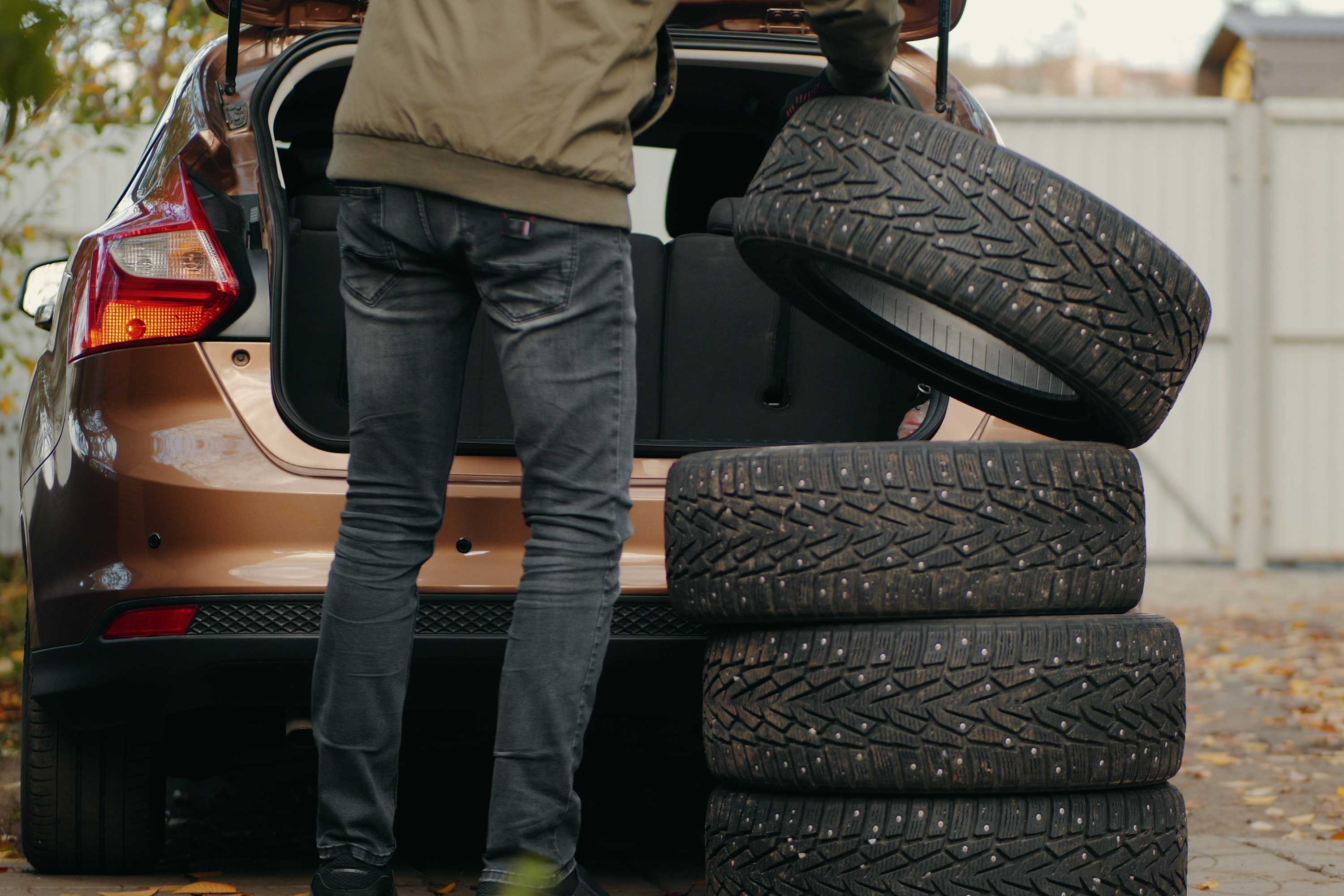What You Could Expect to Spend on Seasonal Car Maintenance
New seasons come with specific upkeep for your vehicle. Knowing what to expect can help you budget accordingly.
 Adobe Stock
Adobe Stock
As the seasons change, so can your car's maintenance needs. From battery checks to swapping out your tires, there are tasks to stay on top of throughout the year — and doing so can also prevent any surprise car maintenance costs.
While how much you spend on seasonal car maintenance may depend on your vehicle's age, type, and level of use, there are a few universal car needs associated with each time of year that can help you budget accordingly.
Summer Maintenance Costs for Cars
Depending on the climate, checking your air-conditioning system is generally a priority for your summer maintenance to-do list. If you turn on your air-conditioner and feel like your air isn't properly cooling, you may need a freon recharge.
Depending on whether you feel equipped to do it yourself or get professional help, these costs could vary widely. Home air-conditioner recharge kits generally cost around $40 to $60, while professional recharges can cost anywhere from $150 to $300, depending on your vehicle and the mechanic.
Another potential maintenance cost that could impact your A/C is your car's cabin air filters. Dirty air filters can impact the effectiveness of your air conditioner and prevent your car from filtering out spring and summer pollen.
The average cost of air filters is around $20 to $50, with the exception of cars that could require more expensive parts. Although your air filters may not need to be addressed every year, you should consider replacing them every 15,000 to 30,000 miles.
Summer road trips come with the possibility of bugs and rain impacting your windshield's visibility, which makes it an ideal time to check your windshield wipers. Wiper blades typically cost less than $40 to replace, depending on the type you purchase, and are often free to install either by yourself or with a professional's help.
As temperatures rise, checking your tire pressure is also important for preventing potential flats or blowouts. If your pressure levels are low, portable tire inflators can come in handy and help you avoid paying for air at the pump. Inflators can range from less than $20 to more than $100, depending on the features. Cars that don't have a spare tire may already have one of these inflators in the trunk, so it's best to check your vehicle or owner's manual before making a purchase.
Winter Car Maintenance Costs
Winter tires and snow tires are a popular investment that can help drivers during the snowy months but may also come at a significant cost.
Winter tire costs typically vary depending on vehicle sizes. For standard passenger cars, you could pay anywhere from $100 to $150 per tire. Meanwhile, winter tires for SUVs and trucks could range from $200 to $400. High-performance tires may be even more expensive, so confirm what your car needs before shopping.
Without the proper coolant levels or ratio, your engine could freeze during the winter, leaving you stuck. You or a professional could check your engine's coolant antifreeze levels as a prevention method and, if necessary, consider a coolant flush to prevent corrosion or freezing. These flushes are usually done about every two years. Coolant flushes can cost between $200 and $250, but antifreeze coolant itself costs around $20 if you do it yourself.
Brakes can experience wear and tear from summer driving and are essential to safety on icy roads. Brake check costs vary by provider, but some shops offer free checks as a courtesy. During these checks, your mechanic will generally inspect your pad thickness, rotor condition, fluid levels, and other functional factors.
Full replacements could range anywhere from around $100 to more than $1,000, depending on labor and parts. Part prices can vary widely depending on your car and brake condition.
Another common issue you could face in the winter is the cold draining energy from your older battery, which could lead to a necessary replacement. Replacement car batteries cost between $100 and $200, depending on the quality, warranty, and type. These are usually easy to replace yourself, which can help you save. However, battery checks are typically free, so adding it to your seasonal maintenance checklist is one way to stay ahead of any potential surprise replacement costs.
Written by humans.
Edited by humans.
 Elliot Rieth
Elliot RiethElliot Rieth is a writer who was born and raised in Michigan, the center of the American automotive industry. With a background in the industry that spans from sales to digital marketing, Elliot has years of experience working directly with dealers and OEMs to create digital content and educate potential customers. When Elliot isn’t writing about horsepower or EVs, he can be found with his two greyhounds enjoying a new book or record.
Related articles
View more related articles